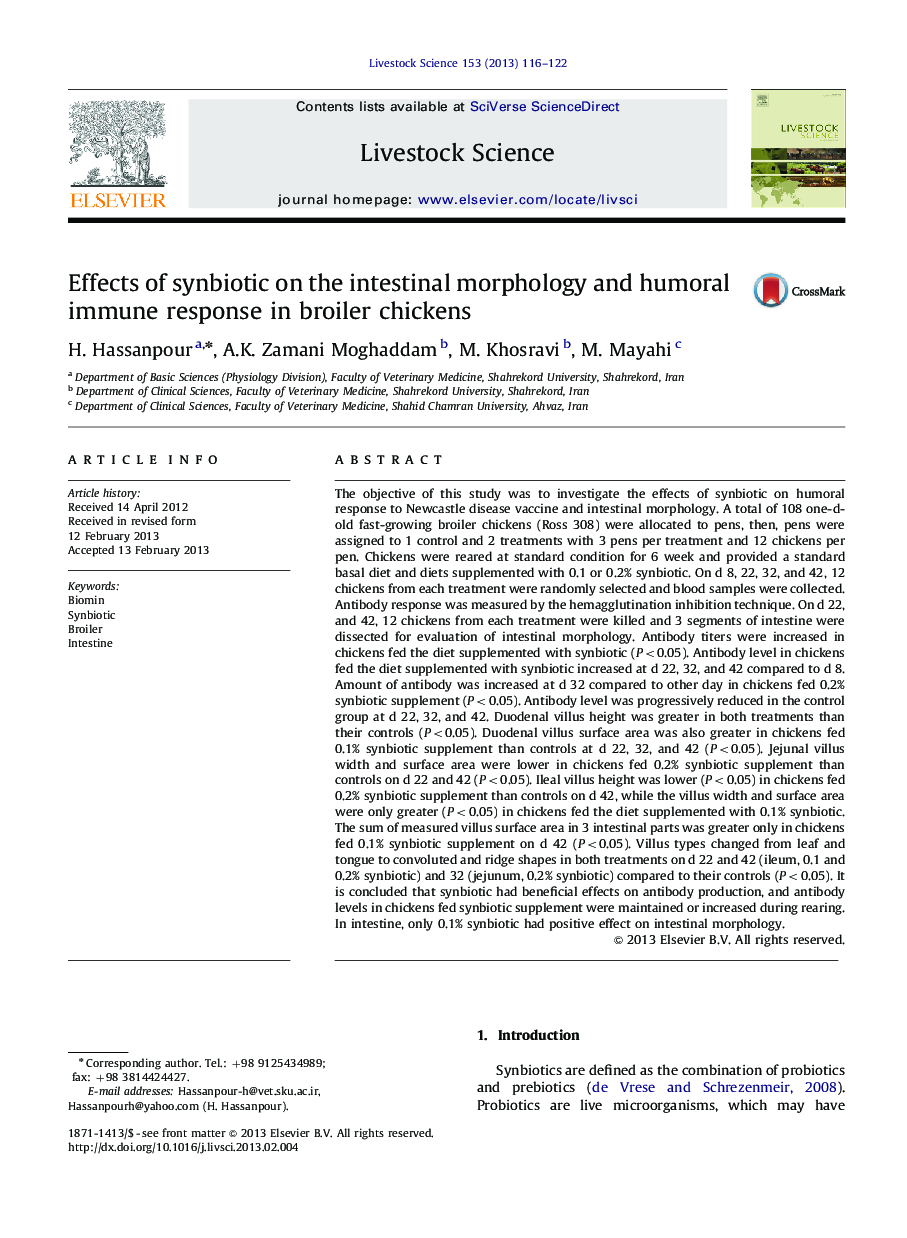| Article ID | Journal | Published Year | Pages | File Type |
|---|---|---|---|---|
| 5790333 | Livestock Science | 2013 | 7 Pages |
The objective of this study was to investigate the effects of synbiotic on humoral response to Newcastle disease vaccine and intestinal morphology. A total of 108 one-d-old fast-growing broiler chickens (Ross 308) were allocated to pens, then, pens were assigned to 1 control and 2 treatments with 3 pens per treatment and 12 chickens per pen. Chickens were reared at standard condition for 6 week and provided a standard basal diet and diets supplemented with 0.1 or 0.2% synbiotic. On d 8, 22, 32, and 42, 12 chickens from each treatment were randomly selected and blood samples were collected. Antibody response was measured by the hemagglutination inhibition technique. On d 22, and 42, 12 chickens from each treatment were killed and 3 segments of intestine were dissected for evaluation of intestinal morphology. Antibody titers were increased in chickens fed the diet supplemented with synbiotic (P<0.05). Antibody level in chickens fed the diet supplemented with synbiotic increased at d 22, 32, and 42 compared to d 8. Amount of antibody was increased at d 32 compared to other day in chickens fed 0.2% synbiotic supplement (P<0.05). Antibody level was progressively reduced in the control group at d 22, 32, and 42. Duodenal villus height was greater in both treatments than their controls (P<0.05). Duodenal villus surface area was also greater in chickens fed 0.1% synbiotic supplement than controls at d 22, 32, and 42 (P<0.05). Jejunal villus width and surface area were lower in chickens fed 0.2% synbiotic supplement than controls on d 22 and 42 (P<0.05). Ileal villus height was lower (P<0.05) in chickens fed 0.2% synbiotic supplement than controls on d 42, while the villus width and surface area were only greater (P<0.05) in chickens fed the diet supplemented with 0.1% synbiotic. The sum of measured villus surface area in 3 intestinal parts was greater only in chickens fed 0.1% synbiotic supplement on d 42 (P<0.05). Villus types changed from leaf and tongue to convoluted and ridge shapes in both treatments on d 22 and 42 (ileum, 0.1 and 0.2% synbiotic) and 32 (jejunum, 0.2% synbiotic) compared to their controls (P<0.05). It is concluded that synbiotic had beneficial effects on antibody production, and antibody levels in chickens fed synbiotic supplement were maintained or increased during rearing. In intestine, only 0.1% synbiotic had positive effect on intestinal morphology.
